Cork woman: I don’t take anything for granted after breast cancer diagnosis
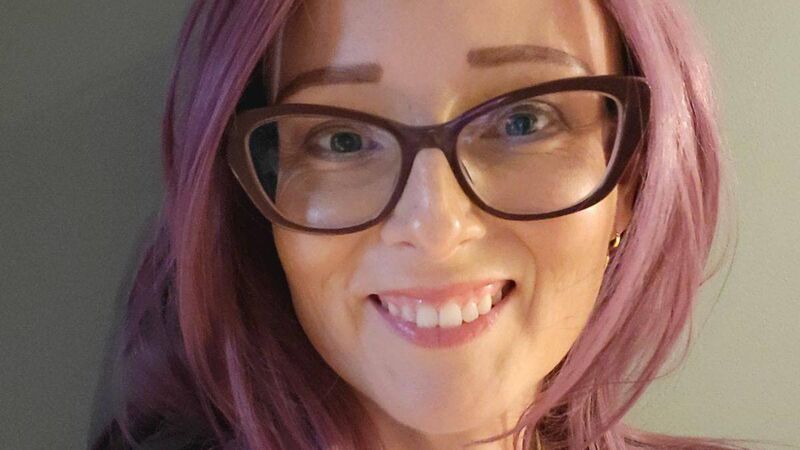
Ruth Galvin, from Kinsale, County Cork.
When Ruth Galvin, from Kinsale, received a breast cancer diagnosis and went through chemotherapy and immunotherapy treatment, she suffered a few unpleasant side-effects.
“Yes, I had stomach problems and fatigue,” says the mum of three.
When she lost her hair after two weeks, she seized a rare opportunity.
“I’m a person who plays with my hair anyway!” says Ruth, who was self-employed as a physiotherapist for 17 years.
“When I lost my hair, I didn’t think about getting a wig straight away, I saw it as an expression of freedom.”
Ruth likes a unique look.
“I got a lot of colourful scarves and turbans to wear,” she says.
“I like changing things up and I’d often wear a pink fringe or wear a mauve wig! I didn’t think losing my hair was the be all and end all.
“I do understand how it can be upsetting though, and it very much depends on the person and how they view their appearance.”
Ruth doesn’t sweat the small stuff.
Getting a cancer diagnosis and what it meant was the be all and end all.
How did Ruth find out she had breast cancer?
“I got the diagnosis in April of this year,” recalls Ruth, just back from a family holiday in Italy.
“I experienced swelling in my breast. And even though I had had a mammogram the previous November, I went to my GP.
“I think everybody should be aware of changes in their bodies. Breast cancer isn’t always detected by a lump. Know your own body.”
Ruth was suspicious.
“I had been in and out of the Orchid centre in CUH as well. When I had a biopsy, I asked outright before the results were back.”
What was she told?
“‘We are really concerned’ are the words I heard,” says Ruth.
Ruth, who has all the traits of her Dragon paddlers pals - positivity, resilience, and bravery - was prepared for a rough time.
I was calm, but I knew I should be prepared for a rough time.
Time was on her side.
“I knew I was on the younger side,” adds Ruth, who was 46 when she was diagnosed.
“I didn’t know anyone who had breast cancer. I knew of very few scenarios. It wasn’t in our family. I had triple-positive breast cancer.”
In triple-positive breast cancer, tumour growth is driven by estrogen receptors, (ER), progesterone receptors, (PgR), and a protein found in breast cells called HER2.
Ruth’s medical plan was five months’ duration.
“Dealing with the after-shock was hard,” she says.
“I knew that staying fit and having regular exercise was necessary to fight infection and to make a good recovery.”
Being surrounded by people who understood and supported her was necessary too. The Cork Dragons, manning their own boat to the rhythmic beat of the drum, fitted the bill.
“I fell across the Dragons on social media,” says Ruth.
They were all in the same boat.
“They offered support, mindfulness and sociability,” adds Ruth.
I was very mindful with the dragonboat paddlers. I found the constant rhythm extremely peaceful.
“The Dragons were all at different stages of their cancer journey. Some had cancer 20 year ago,” says Ruth.
“Some were at different stages of chemotherapy treatment. For others, the cancer had re-occurred. Nobody dwelt on cancer or mulled over it.
“They all have the right attitude. The connection is marvellous.
“The Dragons are proactive. They offer something positive. They offered me motivation. They are role models for me. I find them inspirational.
“The Dragon community are there with you through and after cancer. Socially, they are fantastic.”
The Dragons offered Ruth something else.
“I got a template for cancer after diagnosis,” she says.
Cancer doesn’t define me.
Ruth also took on board the advice of the experts.
“My oncologist told me, ‘Keep yourself out there,’ says Ruth. “Outcomes with the help of mental health outlets are great.”
Did Ruth, young and healthy, feel hard done by getting a breast cancer diagnosis?
“I railed at the unfairness of it,” she recalls.
“It was a huge burden on the family.”
Ruth is logical.
“Yes, I did say ‘Why me,’ but when you look at the stats, it’s a case of why not me. Nobody can escape everything and I’m not the only one.”
Ruth is pragmatic.
“You must live your life,” she says.
“You could torment yourself and ask, ‘What did I do wrong? There is no reason to beat yourself up.”
Ruth is having surgery very soon.
“My breast, and all the lymph nodes surrounding it, will be removed, followed by radiotherapy” she says.
How does she feel about that?
“I’ll focus the mind,” says Ruth.
I’m hoping I won’t feel unwell and that my ability to cope might dip.
She is well versed now on all things surgical.
“I understand this is a surgical procedure,” she says.
“I have coached people post-op. I understand medical management and what it entails. I’m prepared for it.”
She prepared well.
“After treatment, and before my surgery, we decided to take the kids out of school and have a nice getaway to Italy!”
Ruth knows what to expect.
“People shared post-surgical pics with me, bandages, scars, the lot,” says Ruth.
“I have that squared away. I think getting over chemotherapy was the hardest bit.
“Some days were not so bad. Other days were really rough days.”
Ruth lives for each day.
“I’m taking one day at a time,” she says.
She avails of all the wonderful services that are available for people going through a cancer journey.
“The services of the Irish Cancer Society are fantastic,” says Ruth.
I was so well looked after.
“ARC House Cork offer so many wonderful services to alleviate cancer side effects.
“And I have a lovely cosy Blanket of Hope!”
Ruth has been up front about her diagnosis.
“I let them all know,” says Ruth speaking about her family.
“I thought carefully how to approach the subject, telling them the plan is to get rid of the cancer and get back on track. I explained it was still a process.”
Life is an adventurous process.
“We do more now,” says Ruth.
“I am far more conscious of the here and now. I don’t take anything for granted.”
This lady has the right idea.
“You must be patient with yourself,” says Ruth.
“Attitude is very important. There is no point dwelling on the past or on the future.”
She is doing the right thing.
“I’m really looking after me, giving my body the care and attention it needs. I am having quality time at home.”
She’s not always focusing on home.
“I’m doing a Springboard course,” says Ruth.
“And I’ll look for work at some point.”
For now, her close-knit family group of five are in a good place.
“We are very close,” she says.
“My priority is to look after my husband and our three children. That’s my number one role. I am in a good place.”
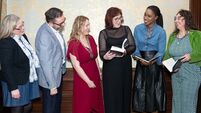
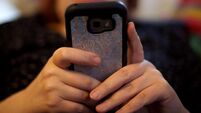
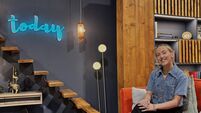
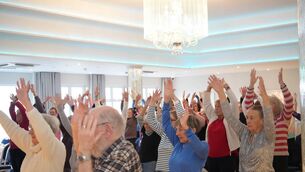



 App?
App?


